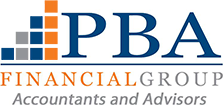Landlords who ‘double dip’, fudge deductions in ATO crosshairs
The Tax Office has warned taxpayers to revise deduction rules and maintain proper records.

.
Landlords who make false deductions by “double dipping” and incorrectly claiming capital expenses and interest on loans will face increased scrutiny this tax time, the ATO has warned.
Assistant commissioner Rob Thomson said most landlords were also guilty of keeping insufficient records that failed to substantiate the expenses they claimed.
“Rental property investments and taxation can get tricky … if you use a tax agent, make sure you let them know all about your rental property, including full records of your expenses,” he said.
The ATO’s warning comes after it found nine out of 10 landlords were making mistakes on their returns, announcing that rental income would be one of three key focus areas for tax time.
The other focus would be incorrectly claimed WFH deductions incomplete tax returns, the ATO said last month.
The most common mistake among landlords was misunderstanding what expenses could be claimed and when, especially for claims for repairs and maintenance compared to capital expenses.
Landlords should only claim deductions for costs incurred in generating rental income and it was a “myth” that all expenses could be immediately claimed, the ATO said.
“It’s normal for landlords to have to fix or replace damaged items in a rental property. But there is a bit of a myth that all expenses can be claimed immediately,” Thomson said.
“A repair can usually be claimed straight away but capital items, think dishwashers, curtains or heaters, can only be claimed immediately if they cost $300 or less, otherwise they need to be claimed over time.”
Landlords were often guilty of making “careless” capital expense claims which had to be claimed over time at a rate of 2.5 per cent over 40 years, with any unclaimed expenses added to the property’s cost base for CGT purposes.
Thomson also warned against landlords “double dipping” on expenses that property managers have already deducted from their total rental income, as landlords could only claim expenses they incurred themselves.
Another common deduction mistake was overclaiming interest in mortgages, the ATO said, estimating over one in four landlords reported incorrect interest expenses last year.
The ATO gave an example of a situation where taxpayers redrew or refinanced a loan for their rental property, used the money to pay for private expenses like a new car, school fees or a holiday, and then claimed the whole amount of interest charged on the investment loan for the year as a deduction.
“For example, if you have an $800,000 mortgage for a rental property and then add $50,000 to the loan to upgrade your family car, you can only claim the interest on the initial $800,000, not the interest on $850,000,” Thomson said.
“It’s also not a matter of simply paying back the private part of the loan and then claiming all interest as deductible,” he said.
“Payments must be apportioned between the private and investment components for the life of the loan.”
Christine Chen
12 June 2024
accountantsdaily.com.au
